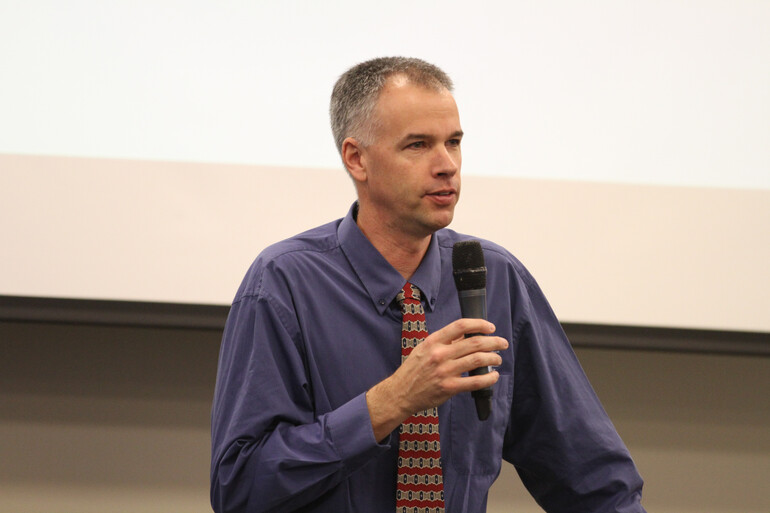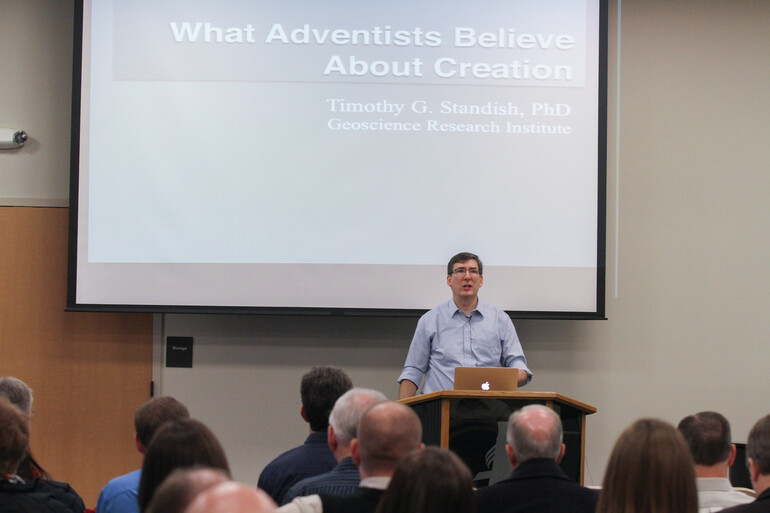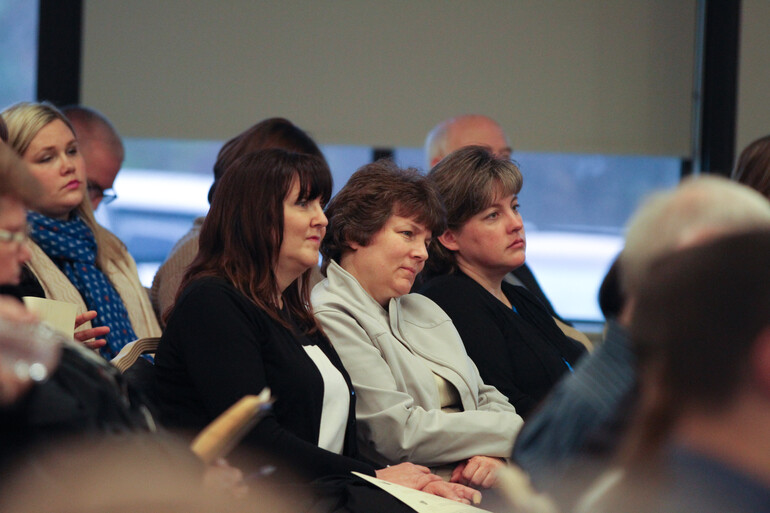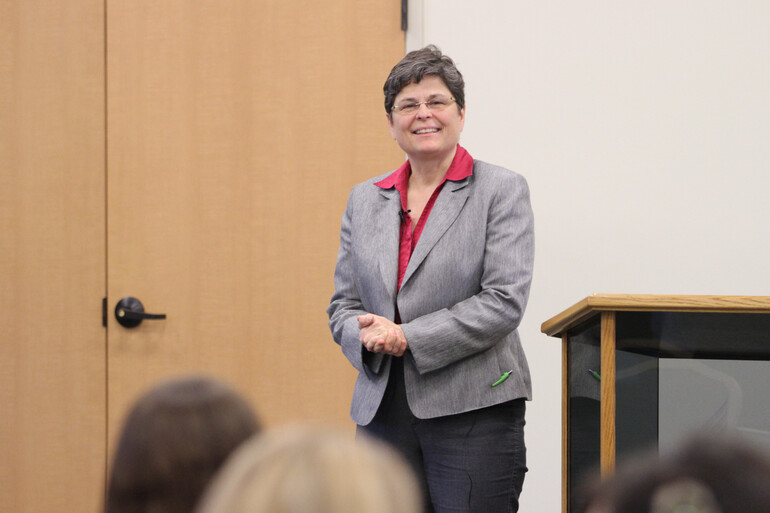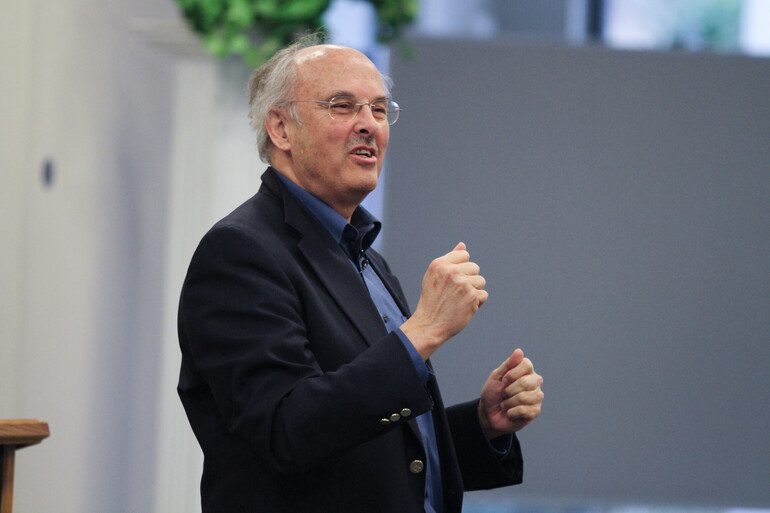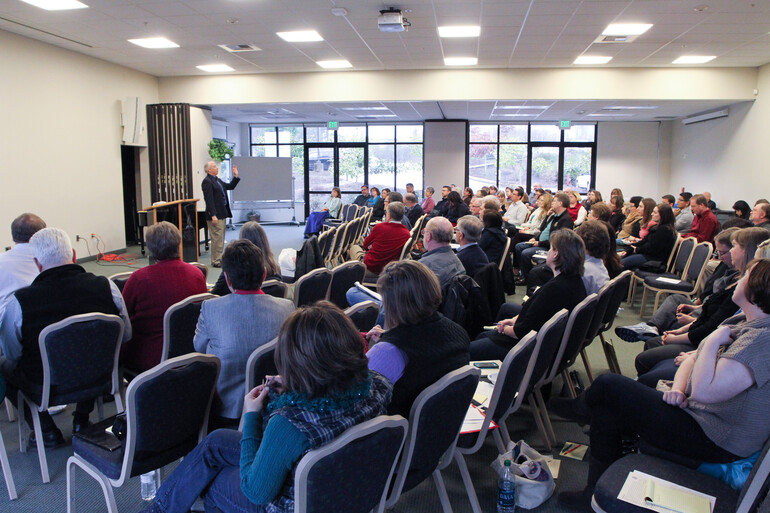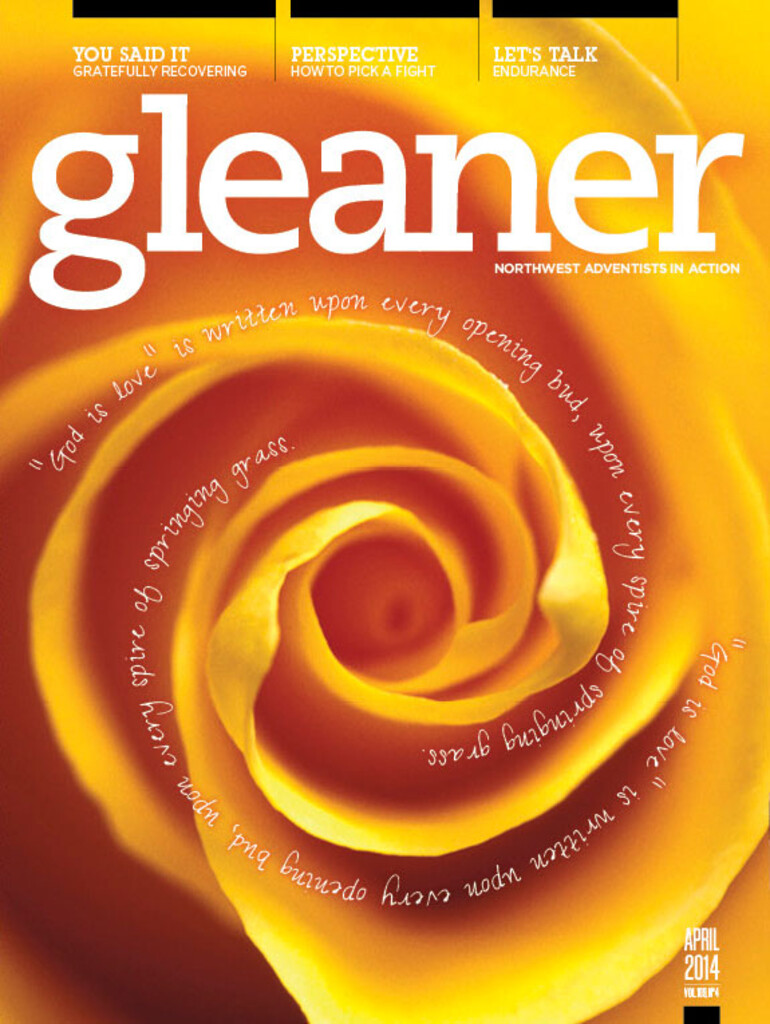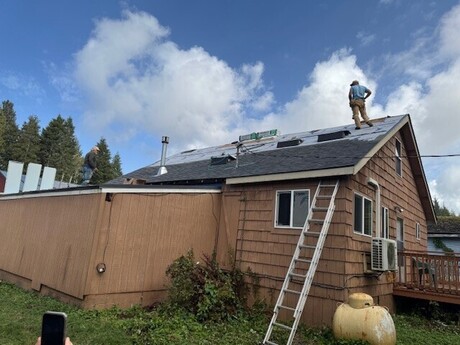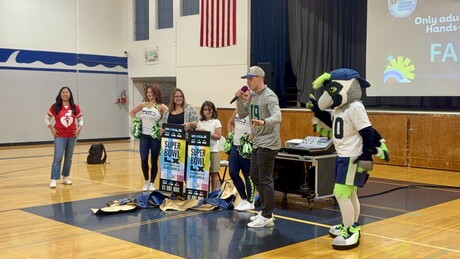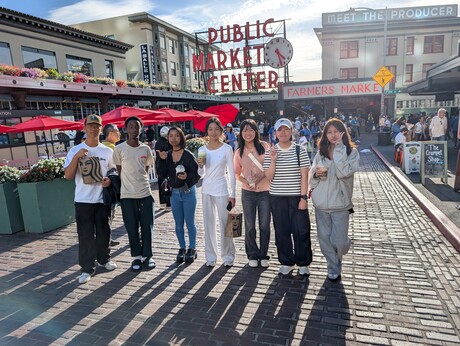Washington Conference educators reversed their roles, from teacher to student, in February for a day of training.
Timothy G. Standish, Terrie Aamodt and Joe Galusha Jr. spoke to 80 teachers and a group of interested pastors about teaching Adventist heritage and creation-based science in the classroom.
Standish, from the Geoscience Research Institute in Loma Linda, Calif., opened the three-part presentation with a scientific rationale for the Adventist view of short Earth history.
“The ultimate objective of Adventist education should be to provide students with the opportunity to make a free and informed choice about what to believe,” says Standish. “Science cannot be ‘scientifically true’ all the time as science changes constantly and the Bible never changes.”
“The question we need to ask is, ‘What about evolution should be taught?’” Standish says. "Students need to know why Adventists reject Darwinism but do not necessarily need to know about ‘evolution’ according to every possible definition.” He says appropriate topics include Adventist beliefs, a definition of evolution, why Adventists reject Darwinism, a description of theistic evolution, and why theistic evolution cannot work.
The takeaway message for Brian Setterlund, Puget Sound Adventist Academy (Kirkland) math teacher was,“It is imperative to study the Bible and keep up with current research in science. Adventists need to know the truth and the errors that are out there.”
Aamodt, Walla Walla University history and English professor, continued the presentations by sharing the story of Ellen White in a social and historical context. “Ellen White’s entire life was spent trying to keep her eyes on Jesus through all life’s experiences, personal and social issues of the day,” Aamodt shared.
Aamodt explained how the way one generation grew up reading Ellen White books is not the same experience as subsequent generations. Aamodt shared a list of topics for teaching Ellen White’s life story from her accident as a child to her lifelong hunger for Jesus and how she joined others to forge a durable religious community.
Galusha, Walla Walla University associate vice president for graduate studies, wrapped up the presentations by sharing why he remains an Adventist scientist. “Scientists get to study some of the greatest things,” says Galusha. “We want students to come with a permission to be curious.”
Galusha’s challenge to teachers was clear: Find ways to say to your students, “I am proud to be a Seventh-day Adventist, and I love Jesus.”




